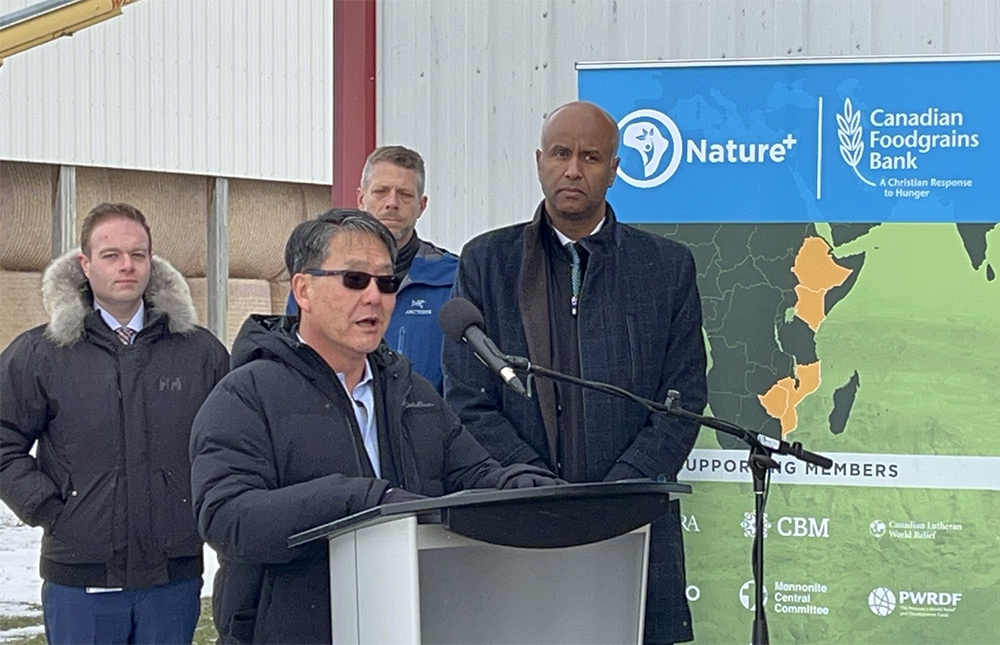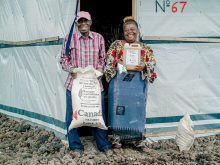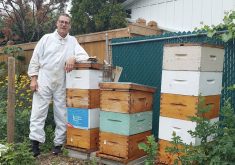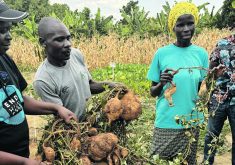GLEN LEA, Man. — Western Canadian farmers suffered from droughts, floods and other volatile weather in recent years, but the impact can be even greater in parts of the world where farmers are poor, have few modern tools, and are coping with already-ravaged land.
“Producing enough food for your family and your community becomes significantly more difficult when dealing with unpredictable rainfall, historical levels of drought and floods,” said Barbara Macdonald, director of international programs for the Canadian Foodgrains Bank at the announcement of $35.5 million in federal funding for a new program in East Africa.
“These projects will enable community members to feed themselves, improve their livelihoods and adapt to climate change.”
The Nature+ program will help about 75,000 food-insecure farmers in environmentally vulnerable areas of Ethiopia, Kenya, Mozambique and Zimbabwe to develop farming systems that can withstand the effects of weather volatility.
Read Also
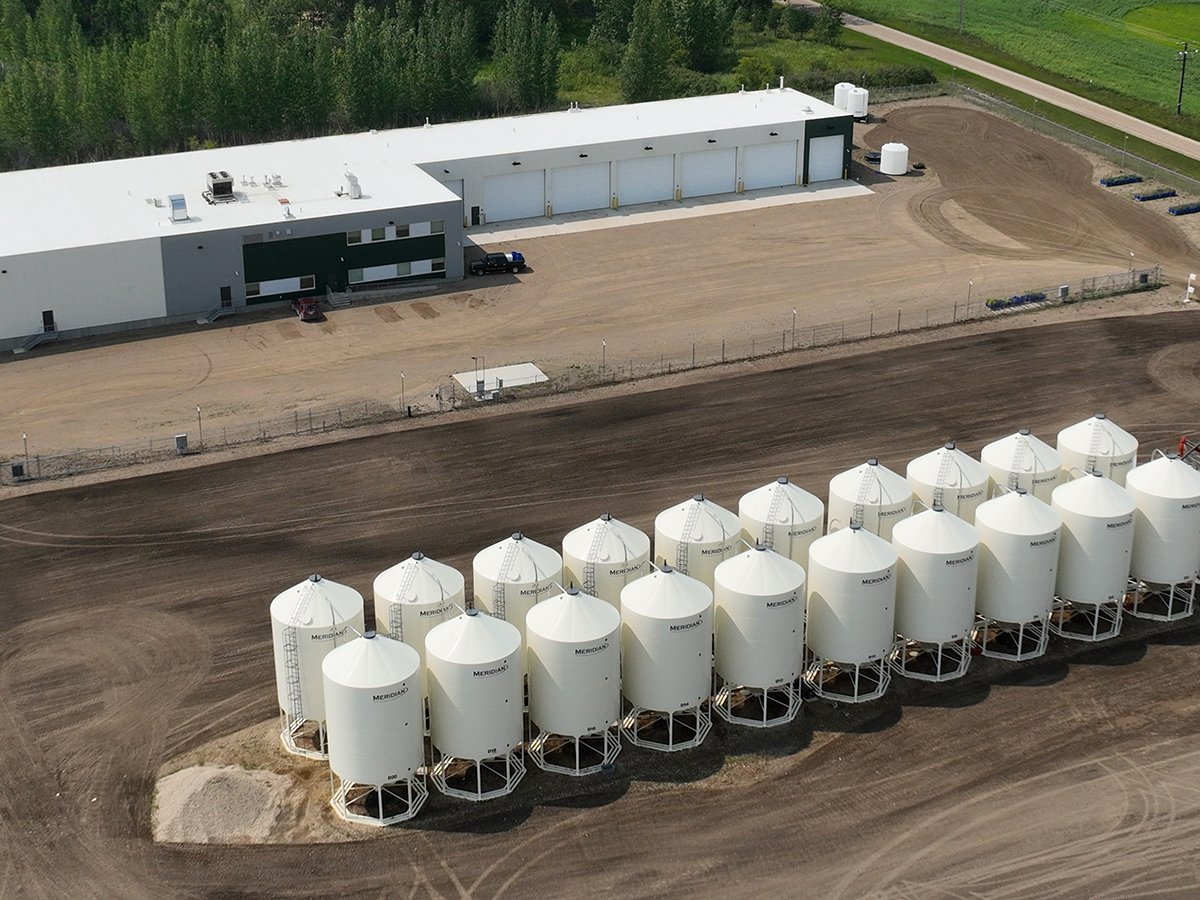
Saskatchewan firm aims to fix soil with compost pellets
In his business, Humaterra, Leon Pratchler is helping farmers maximize yields in the weakest areas of their fields through the use of a compost pellet.
Many African farming areas have seen their soils and water supplies degraded by unsustainable farming methods and by the impact of climate change. To remain viable both for farming families and to produce food for local populations, the soil and water will need to be better protected by developing farming systems that build up the ability of the land to produce food over the long term.
“Ultimately, the goal is to restore ecological health,” said Ahmed Hussen, the federal minister of international development, at the funding announcement, which was held at the University of Manitoba’s research farm south of Winnipeg.
“It is to increase the ability of landscapes to absorb the stresses caused by climate change.”
Some of the approaches likely to be encouraged by the program include conservation agriculture, the planting of fruit trees amid crop fields and the encouragement of broader crop rotations.
The Canadian Foodgrains Bank is co-ordinating the new program, which will work directly with aid organizations from nine of the organization’s 15-member churches, as well as 12 organizations based in East Africa.
Hussen praised the Foodgrains Bank and highlighted the federal government’s long-term relationship with the non-government organization.
“You have been steadfast in attacking food insecurity around the world,” said Hussen.
Winnipeg Liberal Member of Parliament Terry Duguid said Canada and the Foodgrains Bank have shown a long-time commitment to alleviating overseas hunger.
“We know that Canada must continue to step up and do our part, both as a leading agricultural producer and a long-time international assistance partner,” said Duguid.
Stabilizing degraded farming areas won’t be achieved through a short-term fix, said Macdonald.
“This is a long-term project. It’s going to take decades to see these landscapes come back to health,” she said.
“But we are really focused on setting up a solid foundation for that work.”
Contact ed.white@producer.com


